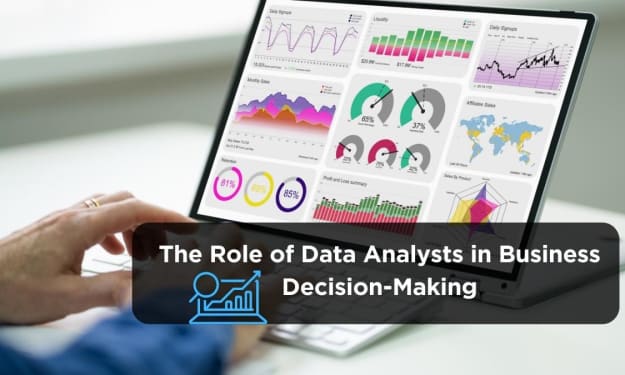Data Engineering Career Paths and Skills Development
Datavalley.ai

The field of data engineering is experiencing explosive growth, driven by the increasing volume and complexity of data that organizations are dealing with today. Data engineers play a critical role in the data ecosystem, enabling the collection, transformation, and storage of data for analysis and decision-making. As data engineering continues to evolve, understanding the various career paths and skill development strategies is essential for professionals looking to excel in this field. In this comprehensive guide, we’ll explore the diverse career paths available to data engineers and provide insights into skill development.
The Role of a Data Engineer:
Before delving into career paths, let’s establish a clear understanding of the data engineer’s role. Data engineers are responsible for designing, building, and maintaining data pipelines that ensure the reliable and efficient flow of data from various sources to storage and processing systems. Their work ensures that data is available, accessible, and ready for analysis by data scientists, analysts, and other stakeholders.
Key responsibilities of a data engineer include:
Data Ingestion: Collecting data from various sources, including databases, APIs, logs, and external data feeds.
Data Transformation: Cleaning, enriching, and structuring data to make it suitable for analysis and reporting.
Data Storage: Storing data in databases, data warehouses, data lakes, or other storage solutions.
Data Processing: Implementing batch and real-time data processing to support analytics and reporting.
Data Governance: Ensuring data quality, security, and compliance with regulations.
Scalability: Designing data pipelines that can handle large volumes of data and scale as needed.
Collaboration: Collaborating with data scientists, analysts, and other stakeholders to understand their data requirements.
Now, let’s explore the various career paths that data engineers can pursue.
Career Paths in Data Engineering
Data engineering offers a range of career paths that cater to different interests and skill sets. Here are some of the primary career paths in data engineering course:
1. Data Engineer:
As a data engineer, you can specialize in building and maintaining data pipelines. This role involves working closely with data infrastructure, ETL (Extract, Transform, Load) processes, and data storage solutions. Data engineers often use tools like Apache Spark, Apache Kafka, Hadoop, and cloud-based services to accomplish these tasks. They are responsible for ensuring data reliability, availability, and performance.
Skills Required: Proficiency in programming languages (e.g., Python, Java), knowledge of database systems (SQL and NoSQL), ETL tools, and data modeling.
2. Big Data Engineer:
Big data engineers focus on managing and processing massive volumes of data, often using distributed computing frameworks like Hadoop and Spark. They design and implement data pipelines that can handle the challenges posed by big data, such as scalability, fault tolerance, and performance optimization.
Skills Required: Expertise in big data technologies (Hadoop, Spark, Hive, etc.), proficiency in programming languages (Java, Scala), and knowledge of distributed computing concepts.
3. Data Architect
Data architects are responsible for designing the overall data infrastructure and architecture of an organization. They work on creating data models, selecting appropriate databases, defining data storage strategies, and ensuring data integration across systems. Data architects play a crucial role in shaping an organization’s data strategy.
Skills Required: Data modeling, database design, knowledge of data integration tools, and a deep understanding of data storage technologies.
4. Cloud Data Engineer
Cloud data engineers specialize in building data pipelines and infrastructure on cloud platforms such as AWS, azure data engineer , or Google Cloud. They leverage cloud services like AWS Glue, Azure Data Factory, and Google Cloud Dataflow to create scalable and cost-effective data solutions.
Skills Required: Proficiency in cloud platforms, cloud data services, infrastructure as code (e.g., Terraform, AWS CloudFormation), and cloud security.
5. Machine Learning Engineer (MLE)
Some data engineers transition into machine learning engineering roles. MLEs focus on deploying machine learning models into production environments. They work on data preprocessing, model deployment, and monitoring to ensure that machine learning systems perform effectively.
Skills Required: Machine learning knowledge, model deployment techniques, programming skills, and understanding of data science concepts.
6. DataOps Engineer
DataOps engineers bridge the gap between data engineering and DevOps. They apply DevOps principles to data pipelines, automating processes, ensuring code quality, and facilitating collaboration between data teams and IT operations.
Skills Required: DevOps practices, automation tools (e.g., Docker, Kubernetes), and knowledge of data engineering technologies.
7. Data Engineering Manager
Experienced data engineers may progress into management roles, such as data engineering manager or director. In these positions, they oversee data engineering teams, manage projects, set strategic goals, and ensure the efficient operation of data pipelines.
Skills Required: Leadership and project management skills, as well as a deep understanding of data engineering concepts and fundamentals of data engineering.
See More: https://datavalley.ai/courses/aws-data-engineer-masters-program/
About the Creator
datavalley Ai
Datavalley is a leading provider of top-notch training and consulting services in the cutting-edge fields of Big Data, Data Engineering, Data Architecture, DevOps, Data Science, Machine Learning, IoT, and Cloud Technologies.






Comments
There are no comments for this story
Be the first to respond and start the conversation.